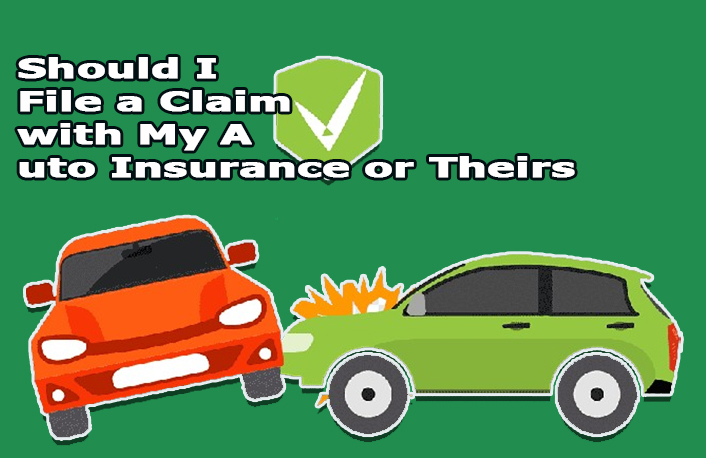Regardless of your driving ability, you must be aware of your surroundings. Despite maintaining a high level of driving safety, accidents still occur, necessitating the filing of an auto insurance claim. If you’re looking for advice on auto insurance claim, specifically whether you should file them yourself or with someone else, you’ve come to the right place.

There are three illustrations in which it is suitable to file an auto insurance claim against someone else’s coverage. First, when you are not responsible and do not have collision coverage, when you do not intend to pay the deductible, and when you do not want to file a claim with your insurance company. If you file a claim with your auto insurance despite not being at fault for the accident, you may see an increase in your premiums. As a result, drivers should avoid submitting a claim automatically with their providers whenever possible.
What to do After a Car Accident That’s Not Your Fault
Following a car accident, the most crucial things to remember are usually to stay safe and get medical help. You may be wondering what to do if you weren’t at fault in the car accident after everything at the scene has been taken care of. In most circumstances, the other party’s liability insurance will cover the property and auto damage.
Medical expenses should also be covered, up to the policy limit. This indicates that you should reach the at-fault driver’s insurance provider to file a third-party claim. In a no-fault state, regardless of who is to accuse, you must file a claim with your auto insurance company.
What Happens Once I File an Auto Insurance Claim
If the other driver’s insurance company determines their insured is legally responsible for your damages or injuries, they will investigate the case and make a settlement offer. Typically, your claim won’t be settled by the insurance company until you sign a “release for damages.” By signing a release, you acknowledge that the sum offered represents your only opportunity to get money from the other driver and the insurance provider.
Before you cash the check or sign the release, make sure you are prepared to accept a final amount. The amount of property damage can be easily agreed upon by both the insured and the insurance company. However, you may not be prepared to settle the bodily injury claim due to unpaid medical bills. Furthermore, insurers cannot deny your property damage claim if your bodily injury claim is still pending.
What Type of Data Must I Provide
The information you are required to provide is not mandated by law. However, the insurance provider must ascertain:
- Whether or not their insured is held legally liable for the accident.
- Expense for property damage or bodily injury you have suffered.
- Whether or not those things are directly connected to the accident
Therefore, it is in your best interest to support your claim with as much information as you can. Furthermore, the company may completely reject your claim if you don’t cooperate.
Should I Call My Insurer if I’m Not at Fault
Even if it wasn’t your fault, you should call your insurance if you have coverage. This could involve collision insurance, medical payments coverage (MedPay), or personal injury protection (PIP). Furthermore, file a timely claim with your auto insurance if the at-fault party has low limits, no insurance, or does not have their information
Who Decides Fault and Cost They Owe
This law only allows you to receive compensation if your share of the accident’s fault was less than 50%. Your percentage of fault can then be deducted from the settlement. For instance, if you were 20% at fault and the other driver was 80% at fault, you are entitled to compensation. This is because you were not more than 50% at fault. However, the insurance provider for the other driver may only offer to cover 80% of your losses.
How to File an Auto Insurance Claim against Someone
You can start a third-party claims procedure by calling the other driver’s insurance company directly if you’ve decided to claim under their policy. You will be submitting a claim against the other driver’s liability as long as they are the one at fault. Filing a claim through the other party’s auto insurance may take longer than filing it through your own insurance company. This is because the insurance company may want to look into the claim before paying you anything.
Final Thought
Even if you weren’t at fault or aren’t prepared to file a claim, you should contact your provider right away after an auto accident involving another driver. It can be difficult to decide whether to file a claim with your auto insurance or the other party’s insurance. However, you should notify your insurance company of the accident and provide them with relevant information and documentation.

